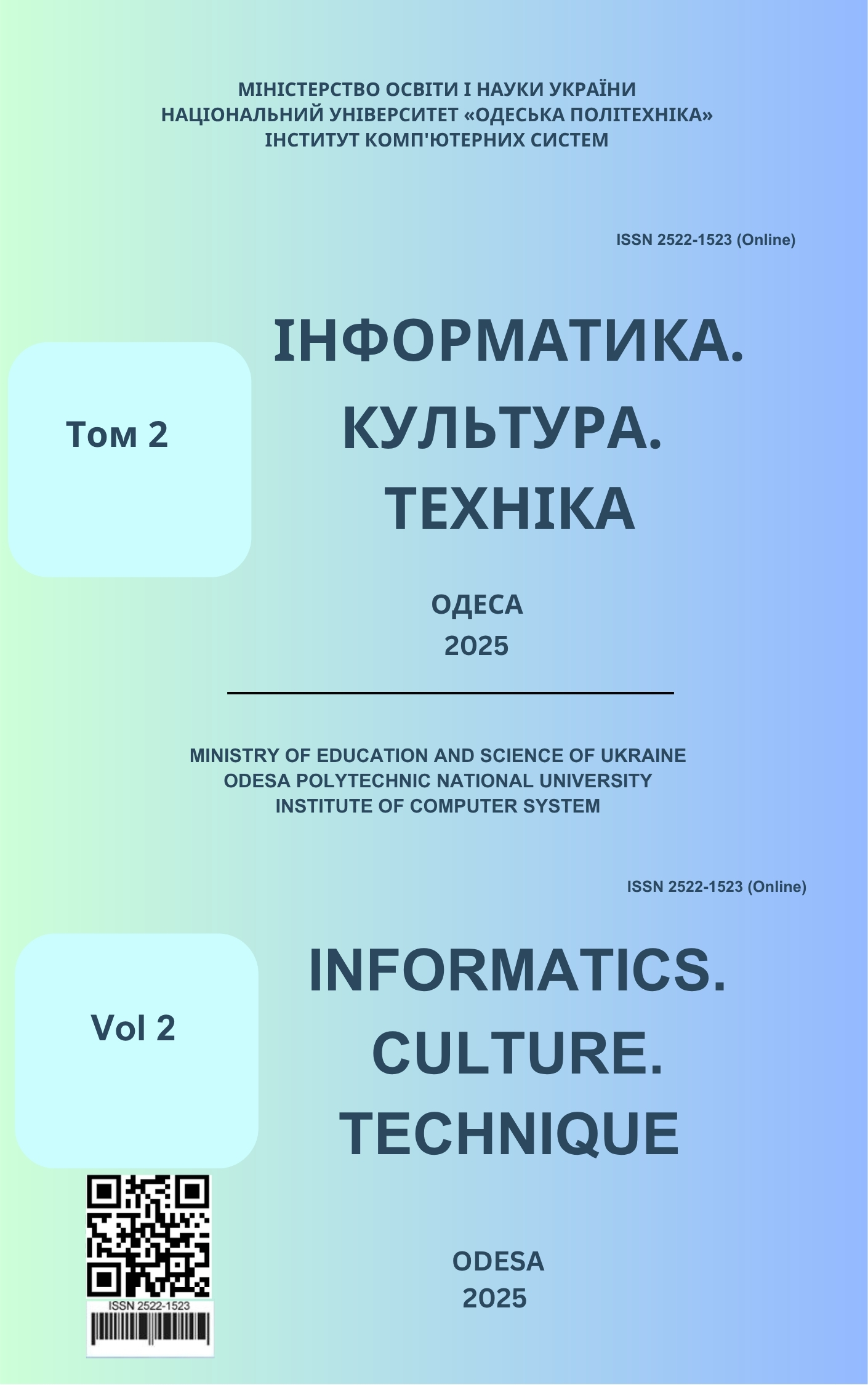Modelling of information system properties of the process of implementing measurements of a specific reliability
DOI:
https://doi.org/10.15276/ict.02.2025.44Keywords:
Information systems, information-measuring systems, estimates of measurement reliability and reliability, measurement errorsAbstract
In recent years, the continuous complication of systems designed to implement certain information processes and the growth of the diversity of such processes in one system is characteristic. The number of sources and receivers of information is also increasing, and information processing processes are becoming more complicated. Unlike previously separately created systems of automatic control, telemechanics, information transmission, information storage and retrieval, etc., complex systems are currently being created, which have been called information or, depending on their main purpose, information-measuring, information-reference and information-management. One of the important practical tasks that one has to face when creating information systems (IS) is ensuring the reliability of the information obtained during measurement. An effective way to solve this problem can be considered the use of metrological analysis (MA) at all stages of the IS life cycle: during design, production, operation and restoration (repair). Metrological analysis is one of the most important sections of metrology, ensuring the fulfillment of the fundamental condition of measurements – establishing guaranteed accuracy of the obtained results. In general, metrological analysis (MA) covers both various research methods (computational, using simulation modeling (IM) or using metrological experiment (ME), and various objects of these studies (errors, error characteristics, metrological characteristics (MC) of measuring instruments and conditions). Thus, an important task is the computational assessment of error characteristics – a component of MA, which plays a special role at the stages of design (synthesis) of measuring instruments (procedures), as well as in situations when other methods (IM, ME) cannot be used or are ineffective. In addition to determining the estimates of measurement procedure errors, an important issue in organizing measurements is the synthesis of a rational version of the structure of the information (or information-management) system (subsystem) (ISM). This task is associated with the choice of technical means characterized by a certain set of indicators, sometimes even contradictory. Hence the need to solve a mathematical problem (in particular, mathematical modeling), which is interpreted as multi-criteria. A group of reliability estimates is identified at each stage of measurement, for which factors are formed that determines the accuracy and reliability of the assessment process. Measurement errors, in particular, systematic regular and methodical, are studied. “Zones” of redistribution of the significance of factors that affect the accuracy and reliability of measurements are constructed.

